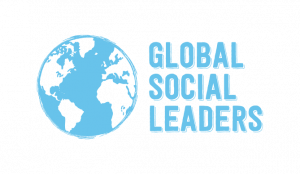We are delighted to share a blog written by teacher Luis Joaquín, from Colegio Internacional SEK Alborán, who is supporting a team of students delivering a Global Goals project for the 2020-21 GSL Global Goals Competition.
Their project is among over 957 social action projects currently running as part of the GSL movement and we are excited to be supporting them to design and lead positive social change in their community.
It is been great to work with my students in such project, I‘m sure they’re learning a lot.
Project Summary
The seriousness of the problem of climate change and the need for the whole centre to be involved in reducing emissions means that the support of the whole educational community is needed. It is important that all components of the educational community know and are aware of the importance of taking measures to reduce the centre’s CO2 emissions and collaborate in this action for the climate.
While the sensibilisation work is being carried out, the students make a quantitative calculation of the centre’s emissions, corresponding to the previous year. Once the data on emissions is obtained, the aim is to find out, from a qualitative point of view, where these emissions are produced in the centre and their causes. Students will be involved in this process. Through this process we have to answer: Which of the activities developed in the school produce emissions? How can these emissions be avoided or reduced?
To achieve this, it is proposed to carry out research based on the environmental behaviour of both students and teachers. And it will consist of:
1. Explaining in class the objectives and methodology to be used in the development of the activity.
2. Give each student a card on observation of environmental behaviour in the centre. Each student will write down at least three negative environmental practices in the centre during the week.
3. Put the information collected in common with all the practices provided, will be organized by category, joining those that are similar and identifying behaviors that can be improved from the environmental point of view.
4. Collect proposals for improvement, and in this way a list of actions will be drawn up to reduce the centre’s emissions, which will be reflected in a proposal for classroom commitments.
Our Journey
I have created the student’s working group; they already met the maintenance manager who gave them specific data on last course paper spending. Now they are planning to go around the school in order to identify bad habits of paper consumption with the idea of creating a good practices Decalogue. The students created a Teams group where we can fluently communicate among us. The whole school is willing to participate.
Once this is done, they will be in charge of making sure the educative community is working on the implementation of the Decalogue. The last step of the project will be to measure paper spending again to obtain both economic data and calculate de CO2 emissions.
Students are truly engaged with the project, and the most important thing, in my humble opinion, is that they feel is going to be useful, not just because I keep on encouraging them but because they’re realising they can learn something interesting through experience.
Our Next Chapter
The reduction actions will be carried out by all sectors of the educational community and for at least one full year before the quantification of emissions is carried out again and it is verified that we have managed to reduce emissions by putting the actions of the Decalogue into action.
The methodological development of the program has variations from the second course of development. In successive years the center will try to:
– First, to develop the actions of the Decalogue from the previous course for at least six months (approximately from September to February). During this time the acts of reduction of the Decalogue can be reinforced by carrying out awareness raising activities.
– Re-calculate the quantity in order to check if the expected achievements with regard to the reduction of emissions have been reached (approximately from March to April).
– Revise the Decalogue to incorporate new commitments to reduce and expand the program by committing to other types of actions such as: small investments in savings and efficiency, more ambitious center commitments or moving the program to families (approximately from May to June).
We will try to repeat this process every year, making our commitment to the climate a challenge that will allow us to reduce our emissions year after year.
A further complementary activity, in connection with the local administration, would be to go for a plantation day so the reduction of CO2 emissions is reinforced.
The 2020-21 GSL Global Goals Competition is now open and runs until June 2021. If you belong to one of the 500+ teams of students currently delivering a social action project as part of the competition we would love to hear from you and feature your blog and project photos on our website to inspire others.




